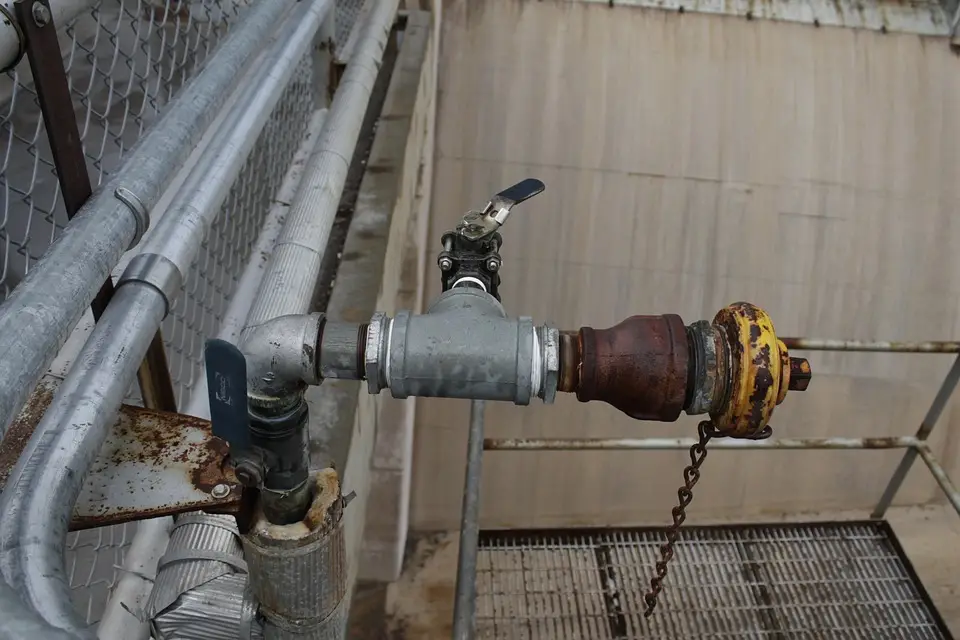We used the latest data and insights to identify the highest paying earth science jobs so that you can learn and earn more.
Ever wondered what the highest-paying earth science jobs are? You’re in luck.
We’ve compiled a list of the highest-paying jobs in earth science—and what it takes to get them. Earth science is a field that covers the study and understanding of the planet we live on. It includes fields like geology, meteorology, oceanography, and astronomy.
Today, we are focusing on the highest-paying earth science careers across these fields to help you identify which ones are the best fit for you.
We sourced data from reliable sources like Payscale and the US Bureau of Labor Statistics.
Let’s dive into the highest-paying earth science jobs.
You Might Also Want To Know:
- 10 Highest Paying Fashion Jobs to Consider
- 10 Highest Paying Graphics Design Jobs to Consider
- 10 Highest Paying Accounting Jobs To Consider
Table of Contents
#10. Urban Planner
How much do they get paid?
- Source: Payscale
- Low Range: $45,000 per year
- High Range: $88,000 per year
- Median Pay: $59,592 per year

What do they do?
Urban planners are responsible for the design and implementation of urban infrastructure. They work with city officials to plan new developments, ensuring they meet zoning regulations.
These environmental planners also work with developers to ensure that new developments meet city standards, such as building height limits, parking requirements, and access to public transportation.
Urban planners help communities plan for future growth by developing land use plans that identify areas suitable for commercial, industrial or residential development.
What degrees and skills are usually required?
Many entry-level planners also have a master’s degree in urban planning. Candidates with an undergraduate degree in architecture or engineering may also qualify for entry-level jobs. This job also requires strong computer skills, as planners use specialized software to create maps and organize data.
Who’s hiring for this job?
The public sector is the largest employer of urban planners. Local governments hire planners to oversee land use planning, growth management, and zoning regulations. State agencies also employ planners to help manage rural development and ensure environmental regulations compliance.
What is the best way to get this job?
An internship is the best way to get a job as an urban planner after graduation. Internships provide real-world experience and can lead to full-time employment with the same employer or another company.
You can also build your resume by volunteering for a community organization or nonprofit dealing with urban planning issues.
What’s it like to be an urban planner?
#9. Conservation Scientist
How much do they get paid?
- Source: ZipRecruiter
- Low Range: $54,000 per year
- High Range: $122,000 per year
- Median Pay: $80,590 per year

What do they do?
A conservation scientist is an expert in the natural sciences who works to preserve and protect land, water, and wildlife.
They work with government agencies to develop policies that protect the environment. This can include ensuring that new developments do not pollute nearby bodies of water or impair the health of ecosystems.
What degrees and skills are usually required?
A bachelor’s degree in any science-related field, such as biology or chemistry, is the most common educational requirement. You may also need a master’s degree in biological sciences or environmental science to advance your career.
Who’s hiring for this job?
State and federal government agencies, environmental organizations, and research institutions are all good places to find jobs in conservation science. You can also find work with private companies that specialize in environmental consulting or remediation.
What is the best way to get this job?
It’s important to get the right education. Many jobs in this field require a bachelor’s degree in biology or environmental science. Some employers also prefer candidates with master’s degrees.
Once you complete your degree, you can find jobs through job boards or networking with people in the field. Consider volunteering at a conservation organization to gain experience and build your resume.
What’s it like to be a conservation scientist?
You Might Also Want To Know:
- 10 Highest Paying Human Resources Jobs to Consider
- 10 Highest Paying Marketing And Advertising Jobs to Consider
- 10 Highest Paying Jobs For Sports Science Majors
#8. Natural Science Manager
How much do they get paid?
- Source: ZipRecruiter
- Low Range: $24,500 per year
- High Range: $195,000 per year
- Median Pay: $92,228 per year

What do they do?
Natural science managers manage all aspects of a company’s scientific research. This can include hiring and overseeing scientists, conducting research, writing reports on findings, and publishing them in scientific journals.
They may also be responsible for ensuring that their company follows all applicable laws, regulations, and policies related to environmental protection.
What degrees and skills are usually required?
A bachelor’s degree in a science field like biology, chemistry, or geology is usually required. A master’s degree in business administration (MBA) may also be helpful in this position.
In addition to these degrees and certifications, natural science managers should have strong leadership skills and knowledge of the scientific research process.
Who’s hiring for this job?
Employers of natural science managers include pharmaceutical and biotechnology companies, government agencies, and research organizations.
What is the best way to get this job?
To get a natural science manager position, you should pursue a bachelor’s degree and a master’s degree in biology or another science field.
You can also get training at an environmental management program through your local college or university. Once you have these qualifications, look for entry-level jobs with research companies.
How do you become a natural science manager?
#7. Hydrologist
How much do they get paid?
- Source: Salary.com
- Low Range: $73,940 per year
- High Range: $123,666 per year
- Median Pay: $96,578 per year

What do they do?
A hydrologist is an environmental scientist who studies the Earth’s water cycle. Hydrologists work to understand how freshwater moves from its source to the ocean through rivers, streams, and underground aquifers. They also study how humans use water for drinking, recreation, and irrigation.
What degrees and skills are usually required?
While entry-level positions require a bachelor’s degree in related science, hydrologists with advanced degrees often work on research projects or teach at universities. Most employers require applicants to have experience in the field.
Who’s hiring for this job?
Government agencies and environmental consulting firms employ most hydrologists. Some work for engineering companies or private research laboratories.
What is the best way to get this job?
You can get a job as a hydrologist by earning a bachelor’s degree in geology, environmental science, or another related field and then pursuing additional education.
Since many employers require applicants to have experience in the field, you may want to get an internship or volunteer at a government agency or environmental consulting firm.
Should you become a hydrologist?
You Might Also Want To Know:
- 10 Highest Paying Mechanical Engineering Jobs
- 10 Highest Paying Jobs For Philosophy Majors
- 10 Highest Paying Music Jobs
#6. Environmental Engineer
How much do they get paid?
- Source: Glassdoor
- Low Range: $63,000 per year
- High Range: $157,000 per year
- Median Pay: $98,924 per year

What do they do?
Environmental engineers are responsible for studying and improving the environment. They work with people to understand how their activities affect the environment and how they can be more sustainable.
Environmental engineers work in different areas, including water quality, air pollution, hazardous waste management, recycling, and land use planning.
What degrees and skills are usually required?
Most environmental engineers have a bachelor’s degree in environmental engineering. Some have master’s degrees, but this isn’t necessary for entry-level positions.
You can also get a bachelor’s degree in another engineering field, like civil or chemical engineering, and then get an environmental engineering master’s degree.
Who’s hiring for this job?
The government, large construction companies, and engineering firms are some of the biggest employers for these environmental scientists. They may also work for universities or research labs in public health or agriculture.
What is the best way to get this job?
Do you want to get one of the highest-paying environmental jobs?
Your best bet is to get a bachelor’s degree in environmental engineering from an accredited college or university. You can also get a postgraduate degree in the field if you want to pursue more advanced studies and research in environmental engineering.
Once you have your degree, it is important to build up your resume with relevant experience.
Volunteering at a local environmental organization or working on an engineering project related to your field will help you gain valuable experience. This will put you on the path toward getting hired as an environmental engineer.
Should you become an environmental engineer?
#5. Sustainability Officer
How much do they get paid?
- Source: Glassdoor
- Low Range: $60,000 per year
- High Range: $171,000 per year
- Median Pay: $100,401 per year

What do they do?
A sustainability officer ensures that a company or organization makes decisions that will benefit the environment.
The job of a sustainability officer is to promote green initiatives and ensure that these initiatives are effective. This means monitoring the progress of any environmental projects and making sure they are working as intended.
What degrees and skills are usually required?
The most common degrees for a sustainability officer are in environmental science, engineering, or business. A bachelor’s degree is usually the minimum requirement for this position, but many employers also look for people with advanced degrees such as master’s degrees or doctorates.
Who’s hiring for this job?
A wide range of employers hires sustainability officers. Universities, corporations, and government agencies are all common employers for this position.
What is the best way to get this job?
Most employers prefer to hire sustainability officers with some experience in the field. However, it is possible for you to get a job as a sustainability officer by starting out as an intern or volunteer and building up your resume over time.
What’s it like to be a sustainability officer?
You Might Also Want To Know:
- 10 Highest Paying Communications Jobs
- 10 Highest Paying Hospitality Jobs
- 10 Highest Paying Interior Design Jobs
#4. Geoscientist
How much do they get paid?
- Source: Zippia
- Low Range: $79,000 per year
- High Range: $154,000 per year
- Median Pay: $110,629 per year

What do they do?
Geoscientists study the earth’s formations and processes. This includes things like earthquakes, volcanoes, and climate change. They also work to improve our understanding of how these things affect human life on Earth.
What degrees and skills are usually required?
Geoscientists typically need a bachelor’s degree in geology or another earth science field. They also must have at least one year of graduate-level coursework and experience working with geological data.
Who’s hiring for this job?
These geoscience experts can find jobs in government agencies, environmental consulting firms, and academia. Some geoscientists also work for engineering companies that need to understand how the ground will react to new building projects.
What is the best way to get this job?
If you’re interested in becoming a geoscientist, it’s important to start by earning a bachelor’s degree in geology or another earth science field. Then you can get a master’s degree in geoscience or earth science to learn more about how the earth works.
After you’ve graduated, you can apply for geoscience jobs and work your way up through the ranks.
Should you become a geoscientist?
#3. Solar Energy Consultant
How much do they get paid?
- Source: Glassdoor
- Low Range: $70,000 per year
- High Range: $201,000 per year
- Median Pay: $117,170 per year

What do they do?
Solar energy consultants help businesses, homeowners, and communities install solar panels.
They evaluate sites to determine whether they are suitable for solar power, identify and address any obstacles, then design and implement a solar installation plan. Consultants also may provide post-installation services such as maintenance or repair work.
What degrees and skills are usually required?
Solar energy consultants typically hold bachelor’s degrees in engineering, such as electrical engineering or environmental science. They also may have experience working with solar panels and other types of renewable energy equipment.
Who’s hiring for this job?
Property owners, real estate developers, and solar energy companies often hire consultants. Consultants may be employed by a single client or may work for several clients at once. They also may provide consulting services on a contract basis.
What is the best way to get this job?
Consultants can get started by gaining experience in the solar industry. You should work as an installer, technician, sales representative, or project manager. Once you have a strong foundation of knowledge about solar energy and how it works, you can begin consulting for clients.
Should you become a solar energy consultant?
You Might Also Want To Know:
- 10 Highest Paying Management Information Systems Jobs to Consider
- 10 Highest Paying Legal Jobs to Consider
- 10 Highest Paying Industrial Engineering Jobs to Consider
#2. Reservoir Engineer
How much do they get paid?
- Source: Payscale
- Low Range: $77,000 per year
- High Range: $176,000 per year
- Median Pay: $119,997 per year

What do they do?
Reservoir engineers ensure that oil and gas companies have an ample fuel supply. They study the earth’s layers to determine where oil and gas deposits lie. Then they design ways to extract them.
What degrees and skills are usually required?
Reservoir engineers typically need a bachelor’s degree in engineering, particularly petroleum or geoscience engineering. This job also requires a strong knowledge of mathematics, physics, and chemistry.
Aspiring reservoir engineers should also have experience working with oil and gas companies or in the field of petroleum engineering.
Who’s hiring for this job?
Large oil and gas companies, especially those involved in exploration and production, are the most likely employers for reservoir engineers. They may also work for consulting firms that specialize in the oil and gas industry.
What is the best way to get this job?
For those who are interested in this field, it is best to get a degree in engineering. You will need at least a bachelor’s degree in petroleum engineering to work for an oil or gas company. You can also find opportunities with consulting firms specializing in the energy industry.
What’s it like to be a reservoir engineer?
#1. Environmental Lawyer
How much do they get paid?
- Source: Comparably
- Low Range: $34,720 per year
- High Range: $799,563 per year
- Median Pay: $168,695 per year

What do they do?
Environmental lawyers specialize in protecting the Earth and its resources. They help companies avoid legal issues by providing advice on how to comply with environmental regulations. These law professionals also work with communities to ensure that other parties do not infringe upon their rights.
An environmental lawyer may represent clients in court or negotiate settlements between parties involved in a dispute over land use or pollution. They might also conduct research and write reports about the status of the environment to influence legislation or policymaking decisions.
What degrees and skills are usually required?
Environmental lawyers must have a bachelor’s degree and an additional three years of law school. They may also need to complete a master’s program or other coursework in environmental science.
Due to the constantly changing nature of environmental law, it is important for attorneys to keep up with current events and scientific discoveries related to the field.
Who’s hiring for this job?
Most environmental lawyers work in private practice. They can also find jobs working for the government or nonprofits that focus on environmental issues.
What is the best way to get this job?
To become an environmental lawyer, you should earn a bachelor’s degree in any field. Next, you can take the LSAT (Law School Admission Test) and apply to law school.
After graduating from law school, you will need to pass the bar exam in your home state before securing an entry-level position in private practice or working for the government.
Should you become an environmental lawyer?
You Might Also Want To Know:
- 10 Highest Paying Law Enforcement Jobs to Consider
- 10 Highest Paying Web Design Jobs to Consider
- 10 Highest Paying Pharmacist Jobs
Conclusion
We hope you’ve enjoyed this list of the highest-paying Earth Science jobs. If you’re looking for a career change, it’s always a good idea to keep your options open. We hope our research will help you make the right choice.
Do you have any questions about our list? If so, please leave us a comment below, and we’ll do our best to get back to you as soon as possible.


